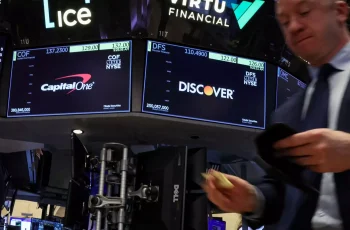The expiration of Vanguard’s patent this year marks a pivotal shift in the world of exchange-traded funds (ETFs). Vanguard, long regarded as the titan of the ETF space, has benefited significantly from this patent, which facilitated tax-efficient investing. The loss of this proprietary edge could cultivate a fertile ground for industry competitors to innovate, ultimately reshaping the landscape of investment strategies and the inherent value offered to investors.

Competition breeds innovation, and with Vanguard’s monopoly on the tax-efficient ETF structure now dismantled, firms such as BlackRock and Charles Schwab could unleash new strategies that mimic or enhance the now-available Vanguard structure. The ETF industry may see a surge of creativity aimed at maximizing investor returns while minimizing tax liabilities. Each firm vying for market share could develop unique offerings that take advantage of this previously restricted paradigm, thus enriching the investing landscape.
A Paradigm Shift in Investor Accessibility
With the expiration of Vanguard’s patent, the concept of an ETF as a separate share class within a mutual fund becomes more than just a theoretical proposition; it’s a potential reality awaiting regulatory endorsement. Experts like Ben Johnson from Morningstar herald this change as an opportunity for millions of investors, positing that the ability to reduce tax burdens will democratize access to wealth-building investment strategies. By introducing this structure, asset managers can align their interests more closely with investors, guiding them toward favorable tax outcomes without compromising diversification or management.
As retail investors increasingly seek tax-efficient investment vehicles, firms that actively innovate within this realm stand to gain substantial competitive advantages. Tax efficiency features could become a hallmark of modern investment offerings, setting vendors apart based on how well they can craft these solutions.
The Role of Regulatory Approval
The Securities and Exchange Commission (SEC) holds the keys to unlocking this new era of ETFs. However, the prospect of regulatory approval should not be taken lightly. The SEC’s decisions will dictate how quickly and effectively this innovation can be adopted industry-wide. Theoretically, approval could arrive as soon as this summer, a timeline echoed by Johnson, reinforcing the sentiment that this shift is not only impactful but imminent.
Yet, the SEC’s cautious approach to regulation shouldn’t be underestimated; its decisions will need to balance safeguarding investor interests with fostering innovation in a rapidly-evolving market. Proponents argue that allowing these tax-efficient structures will unleash healthy competition, benefiting the consumer and enhancing market fluidity. Yet, one must question whether a rush towards regulatory approval serves the greater good or simply expedites market clutter.
The Implications for Vanguard
As Vanguard reevaluates its fundamental position in the ETF marketplace, it faces an existential challenge. The once-untouchable brand may find its market dominance tested by emerging competitors unfettered by the constraints of the expired patent. This could, ironically, serve as a wake-up call for Vanguard to innovate and differentiate further.

Ultimately, the expiration of Vanguard’s patent serves as a clarion call for the ETF industry. It underscores the necessity for constant adaptation in a world where investment strategies must evolve in response to both market trends and regulatory landscapes. The stage is now set for a competitive renaissance that prioritizes investor wealth, provided the industry can navigate the complex regulatory framework that lies ahead.

